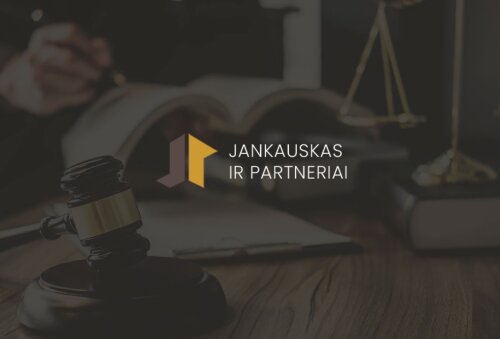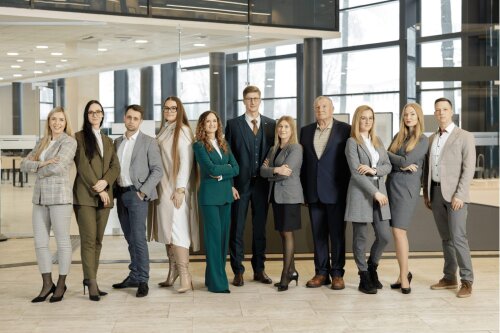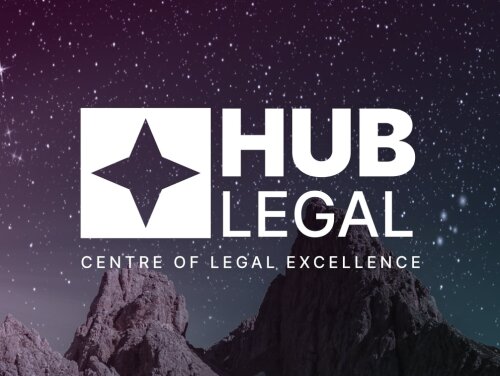Best Renewable & Alternative Energy Lawyers in Republic of Lithuania
Share your needs with us, get contacted by law firms.
Free. Takes 2 min.
Or refine your search by selecting a city:
List of the best lawyers in Republic of Lithuania
About Renewable & Alternative Energy Law in Republic of Lithuania
In the Republic of Lithuania, renewable and alternative energy is a vital part of the national energy policy. The country has made significant progress in reducing its dependence on fossil fuels by increasing the use of renewable energy sources such as wind, solar, biomass, and hydroelectric power. The Lithuanian government actively supports initiatives to enhance energy efficiency and sustainable energy production, aligning with the European Union's climate and energy directives. Legal regulations in this field aim to create a favorable environment for investment, protect the environment, and ensure energy security.
Why You May Need a Lawyer
Legal guidance can be essential for individuals and businesses involved in renewable and alternative energy projects in Lithuania. You may need a lawyer in situations such as:
- Obtaining permits and licenses for building renewable energy facilities
- Navigating complex regulatory compliance requirements
- Drafting and reviewing contracts for equipment supply, land lease, or energy purchase agreements
- Handling disputes with regulatory authorities, suppliers, or customers
- Understanding incentives, subsidies, and tax implications applicable to renewable energy projects
- Ensuring property rights, environmental protection, and zoning compliance
- Participating in public tenders or auctions for renewable energy projects
- Protecting intellectual property and technological innovations in the energy sector
Local Laws Overview
Lithuania's renewable and alternative energy laws are shaped by national legislation and European Union directives. Key legal aspects include:
- Law on Energy from Renewable Sources - Sets the framework for promoting and developing renewable energy, including requirements for investment, production, and integration into the grid.
- Environmental Protection Regulations - Address issues such as environmental impact assessments, land use, and the management of resources to ensure sustainable development.
- Grid Connection Rules - Define processes and requirements for connecting new energy production units to the national electricity grid.
- Support Schemes and Incentives - Offer financial support and incentives for renewable energy projects, including auctions and fixed tariffs overseen by the National Energy Regulatory Council.
- Public Procurement and Construction Law - Guide the development, tendering, and building of energy infrastructure projects.
- EU Renewable Energy Directive Compliance - Ensures Lithuania meets its binding commitments for renewable energy production under EU law.
Frequently Asked Questions
What types of renewable energy are most common in Lithuania?
Wind, solar, biomass, and hydroelectric power are the primary sources of renewable energy in Lithuania, with wind being the most widely developed.
Do I need a permit to build solar panels on my property?
Permits are generally required for larger installations, particularly those feeding energy into the public grid. Small-scale, household systems often have simplified procedures but may still require notification or compliance with technical standards.
How can I sell renewable energy generated on my property?
You can sell energy to the national grid through agreements with electricity suppliers or participate in state-supported schemes. Compliance with grid connection and metering regulations is necessary.
Are there financial incentives for investing in renewable energy?
Yes, incentives such as subsidies, grants, and favorable feed-in tariffs are available through national programs and EU funding for eligible projects. Regular auctions are held for larger projects.
What environmental approvals are needed for renewable energy projects?
Major projects usually require environmental impact assessments and approvals from environmental protection agencies to ensure compliance with ecological standards and land use planning.
Can foreign investors develop renewable energy projects in Lithuania?
Yes, Lithuania welcomes foreign investment in the renewable energy sector, offering a transparent regulatory environment and access to support schemes.
How long does it take to obtain the necessary permits?
The timeline varies depending on project complexity, location, and technology. It can take several months or longer for large-scale projects, while small household installations may be approved more quickly.
Who oversees renewable energy regulation in Lithuania?
The National Energy Regulatory Council (VERT) and the Ministry of Energy are the key authorities responsible for regulating the sector, overseeing market activities, and implementing support schemes.
What happens if I do not comply with renewable energy regulations?
Non-compliance can lead to administrative fines, revocation of permits, or other penalties. Ensuring compliance with all regulatory requirements is essential to avoid legal issues.
Can I participate in renewable energy auctions as a small producer?
While most large-scale auctions are aimed at commercial producers, some support schemes are designed for small and community-based producers, providing opportunities to benefit from public programs.
Additional Resources
For further guidance and information, the following resources and organizations can be helpful:
- Ministry of Energy of the Republic of Lithuania
- National Energy Regulatory Council (VERT)
- Environmental Protection Agency
- Invest Lithuania - Agency supporting investors in the energy sector
- Association of Renewable Energy Producers
- Local law firms with a focus on renewable energy and environmental law
- European Union funding and advisory portals for renewable energy projects
Next Steps
If you are considering developing, investing, or participating in renewable and alternative energy projects in Lithuania, you should gather detailed information about your proposed activity and its legal requirements. Consulting a qualified lawyer with expertise in renewable energy and local regulations is highly recommended. A legal specialist can advise on compliance, help with documentation, represent you before authorities, and protect your interests throughout the project lifecycle. To get started:
- Define your project goals and scope clearly
- Research relevant support schemes and incentives
- Contact local authorities for initial guidance and regulatory requirements
- Seek legal advice to review contracts and regulatory obligations
- Ensure all permits, licenses, and environmental approvals are in place before starting your project
Taking these steps will help ensure your renewable or alternative energy initiative is successful, legally compliant, and sustainable.
Lawzana helps you find the best lawyers and law firms in Republic of Lithuania through a curated and pre-screened list of qualified legal professionals. Our platform offers rankings and detailed profiles of attorneys and law firms, allowing you to compare based on practice areas, including Renewable & Alternative Energy, experience, and client feedback.
Each profile includes a description of the firm's areas of practice, client reviews, team members and partners, year of establishment, spoken languages, office locations, contact information, social media presence, and any published articles or resources. Most firms on our platform speak English and are experienced in both local and international legal matters.
Get a quote from top-rated law firms in Republic of Lithuania — quickly, securely, and without unnecessary hassle.
Disclaimer:
The information provided on this page is for general informational purposes only and does not constitute legal advice. While we strive to ensure the accuracy and relevance of the content, legal information may change over time, and interpretations of the law can vary. You should always consult with a qualified legal professional for advice specific to your situation.
We disclaim all liability for actions taken or not taken based on the content of this page. If you believe any information is incorrect or outdated, please contact us, and we will review and update it where appropriate.
Browse renewable & alternative energy law firms by city in Republic of Lithuania
Refine your search by selecting a city.















